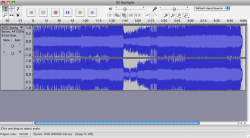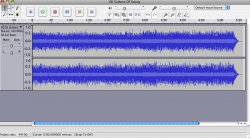I'm guessing that iTunes can play the LAME files, but can an iPod?
Yeah, of course. But they aren't called "LAME files." LAME is the encoder, not the file format.
But I prefer Max since it uses LAME to encode and it encodes/converts into more formats.
However, be aware that sometimes, the production itself sucks arse. Like for example, Metallica's new album has horrible mastering (loudness + compression) so even if you rip to Apple Lossless, it will still sound like crap.



